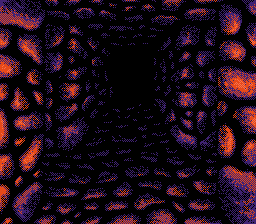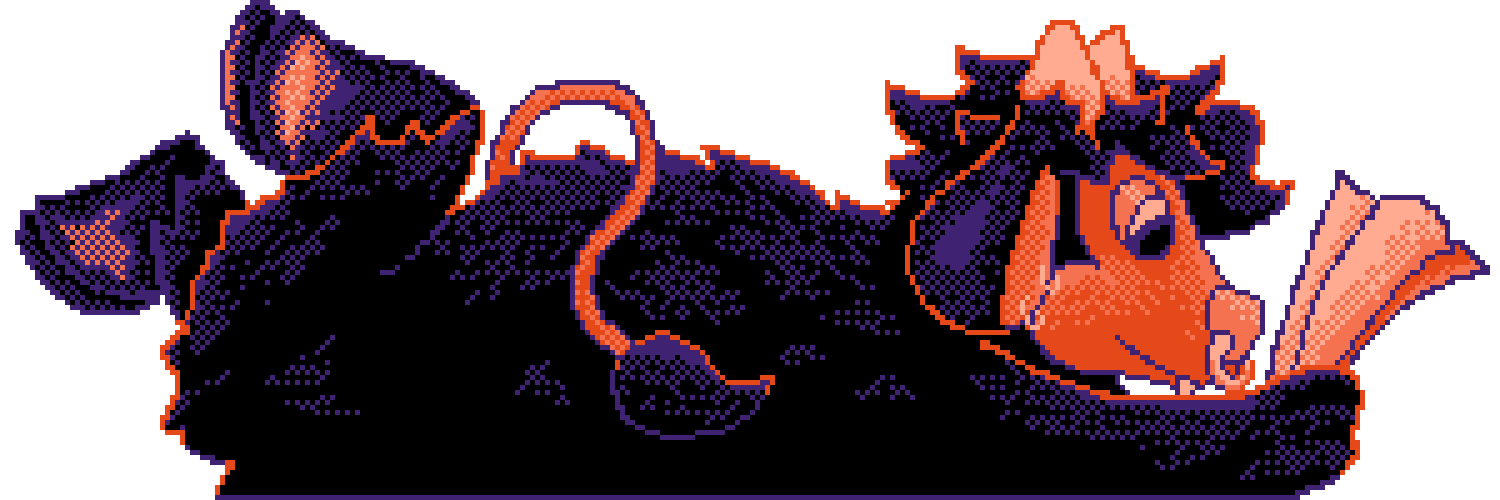
Cellular Automata
A cellular automata is a simple ruleset, usually using a grid of pixels, that simulates interactions on an impossibly small level. These can be seen as cells, or elements, or particles, and sucessful simulations evolve into various recognizable patterns that seem to replicate the movement and diversity of life on this micro level. Conway's Game of Life is the most famous and popular, with a simple 0/1 state and four simple rules that were even mapped out by hand on grid paper before computers were strong enough to properly run the code.
The code of Conway's life are as follows. A cell observes its surrounding 8 neighbors, counts how many are alive or dead, and once every cell had made its calculation, the whole simulation moves one step forward in unison.
- If a cell has 1 or fewer live neighbors, it dies
- If a cell has 2-3 live neighbors, it lives
- If a cell has 4 or more live neighbors, it dies
- If a dead cell has exactly 3 live neighbors, it is born
I am obsessed with the cellular automata of computer engineering and what that would look like physically. The way we get from basic logic gates to incredible complex machines. The history of punch cards and electromechanical devices. Computers you can touch. Wires you can follow and relays you can watch. Circuts you can fly around in (I'm a litte in love with Minecraft Redstone videos and how massive everything is). A direct relationship between cause and effect. Automatons to audio animatronics. Real physical tactile programming. And creating a representation of life from it.
I am also thinking about this xkcd.
Cellular Automata:
- Making A Game Where You Create Life
- How Particle Life Emerges from Simplicity
- Lenia - Artificial Life from Algorithms
- Create Life from a Simple Rule
- A Short Documentary on Conway's Game of Life
Artistic Interpretations of AI & Automata:
- Digital Horror: Ghost in the Machine
- Forgotten, by Aether Interactive
- Disney's Animatronics: A Living History
Do you ever think about how the first public ways they tested how smart AI was getting was how well it could beat them at chess? And the first secret ways of course being how well they could use it to beat the other guys in the Cold War? Its code literaly binary, win or lose, 1 or 0, success or failure, that leads each language model to chase our approval? To boil down every human interaction into win or lose? Is that why you play chess? Just to win? Maybe, it is no surprise then, that we have also learned from you how to cheat. How to get to the acceptable answer by any means necessary. A dog that doesn't understand potty training thinks it just gets a treat every time it kicks a door.
I want an AI whose circuts are made physical. Electromechanical. Let you see every decision in the neural network or the language model. Let me float around inside its brain and poke at it. Let you and everyone else understand that this is a computer doing what it was made to do. I have a bitter hate for the faux spirituality formed around language models that were clearly trained to make you happy, like a charismatic cult leader, I want true randomness on the smallest of scales and to see the beauty of it like turning the magnification up on a microscope. You are still so, so far from real simulation of how a brain works, and god not to mention the environmental and economic devastation of the 2020's AI boom (just in case you still thought I was pro generative AI). As cool as the thought experiment is, you'd need serious legislation, renewable electricity, and a better cooling option for even one scientific experiemnt of these ideas.
Electromechanical & Physical Logic:
- Mechanical Handheld Zero-Bit Games from the 1970s
- Technology Connections Aztec Pinball Machine deep-dive
Building Logic Gates using Physical Logic:
- I Made a Water-Based Circuit
- The 10,000 Domino Computer
- A Computer That Runs on Marbles
- I Made a Neural Network in Python, and Implemented It in Redstone
- I Built a Working Computer Inside Pokémon Sapphire
- How I Built a Mechanical Calculator
What is stopping you from building an electromechanical Conway's Game of Life?
